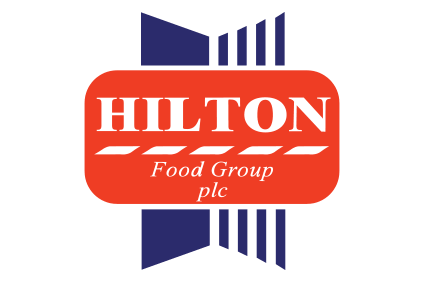
Hilton Food Group, the UK meat, fish and plant-based business with operations across Europe and in Australia, said it is well-placed to weather the escalation in the coronavirus crisis and a possible recession.
With the vast majority of Hilton’s business channelled through private label in the retail sector, the London-listed company reported today (17 September) it benefited from Covid-19 boosting demand for food for at-home consumption, which helped drive an almost 39% increase in first-half revenues to GBP1.26bn (US$1.62bn) and a 23% rise in volumes.

Discover B2B Marketing That Performs
Combine business intelligence and editorial excellence to reach engaged professionals across 36 leading media platforms.
Hilton, which owns the Seachill frozen food business, also has new plants coming on stream. One in Belgium, a market it entered last year through a partnership with retailer Ahold Delhaize for red meat, is due to open next month. And another in New Zealand for fish products will start operations in the third quarter of next year, having been delayed due to travel restrictions linked to Covid-19.
Beyond the first-half results to 12 July, chief executive Philip Heffer said the ‘Eat Out to Help Out’ scheme launched in the UK for the whole of August to support the restaurant sector resulted in reduced retail demand. And now many countries in Europe – where Hilton has seven manufacturing plants aside from the new one in Belgium – are grappling with an upsurge in Covid-19 cases and in some nations such as the UK, local lockdowns.
“We do believe that in-house consumption from our previous base will be higher but we have to wait and see what happens,” Heffer told just-food. “We are ready for anything that happens if the virus gets worse. We’ve got all our contingencies in place and are doing everything to protect everyone that works for us and keeping our facilities open.”
Hilton was able to keep all of its plants running at the height of the coronavirus outbreak and beyond but now has a potential recession to deal with.

US Tariffs are shifting - will you react or anticipate?
Don’t let policy changes catch you off guard. Stay proactive with real-time data and expert analysis.
By GlobalDataHeffer said: “Normally within a recession, the initial thing is people cut back on their disposable income … so we do generally see then a push back to in-home consumption. From our point of view, we will probably maintain volumes – it might not be the most expensive products – but particularly when you look at mince, it’s a very versatile product and not expensive.”
He continued: “I’m sure we are coming into a recession and, like everybody would be, we are looking at all of our costs, our ranges for our customers and we are working with our retail partners to make sure we are in a very strong position to make sure we can get through the recession successfully.”
The busy Christmas retail season is also approaching and will coincide with the end of the Brexit transition period. And local lockdowns, with many UK cities restricted to having six people in their homes, could have an influence on demand.
“I cannot believe the Government is going to apply the rule-of-six come Christmas,” Heffer said. “I think from our point of view, we are expecting Christmas to be in-line with what we’ve been anticipating.”
CFO Nigel Majewski added: “Obviously we are keeping one eye on the Brexit scenario. If things don’t pan out then we will probably build a limited inventory, for example on the fish side but, nothing specific regarding a recession. We are relatively well-placed because our model is largely local sourcing.”
In today’s first-half results, Hilton reported an 18% increase in adjusted operating profit to GBP31.5m, and a 15% rise in adjust profits before tax to GBP28.1m.
In 2018, Hilton bought a 50% share of Netherlands-based vegetarian firm Dalco.
“The Dalco business is going very well and obviously we need to make sure that we are in a good position,” Heffer said. “But the growth opportunities that are coming down the road, and with everyone wanting to play in plant-based, we have to see where the market is going to end up – whether that’s a branded business or a [private-]label business or what the consumer actually wants in a very immature market at the moment.
“We are pleased with our progression within the plant-based arena and we always will make investments in the right areas as we see fit.”
Majewski added with respect to Dalco: “Last year, we experienced double-digit growth. Vegetarian didn’t grow as rapidly as meat as a category during Covid-19. But all from a pretty low base, which is one way we are looking to grow further.”
In Australia, where Hilton has an agreement with the country’s largest retailer Woolworths, revenues surged to GBP228m from GBP7.6m a year earlier. Operating profit climbed to GBP7.5m from GBP4.7m.
Europe is a far larger market for Hilton, where revenues rose to GBP1.04bn from GBP905m, while operating profit increased to GBP31.3m from GBP27.9m.
Hilton took over two of Woolworths’ manufacturing plants in 2018 and has since opened a new facility in Queensland.
Asked if Hilton can maintain the pace in Australia, Heffer said: “As far as the second half is concerned, we’ve taken over the assets from the JV so that will certainly add to turnover, which was boosted of course by the whole Covid-19 home consumption issue.
“But the main driver was the opening of the new facility last July in Queensland. That won’t be ramping up further than it currently is, although we will still look for the opportunities in Australia as we go forward.”





